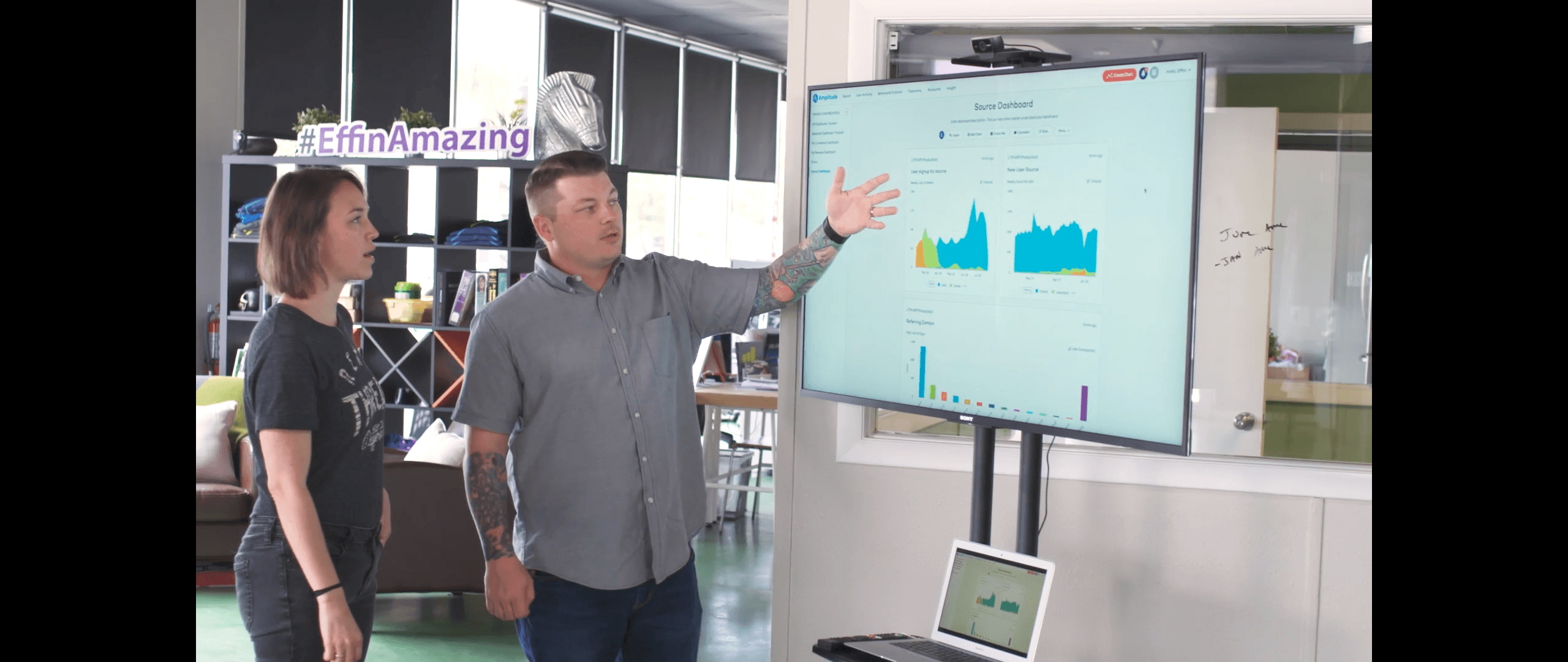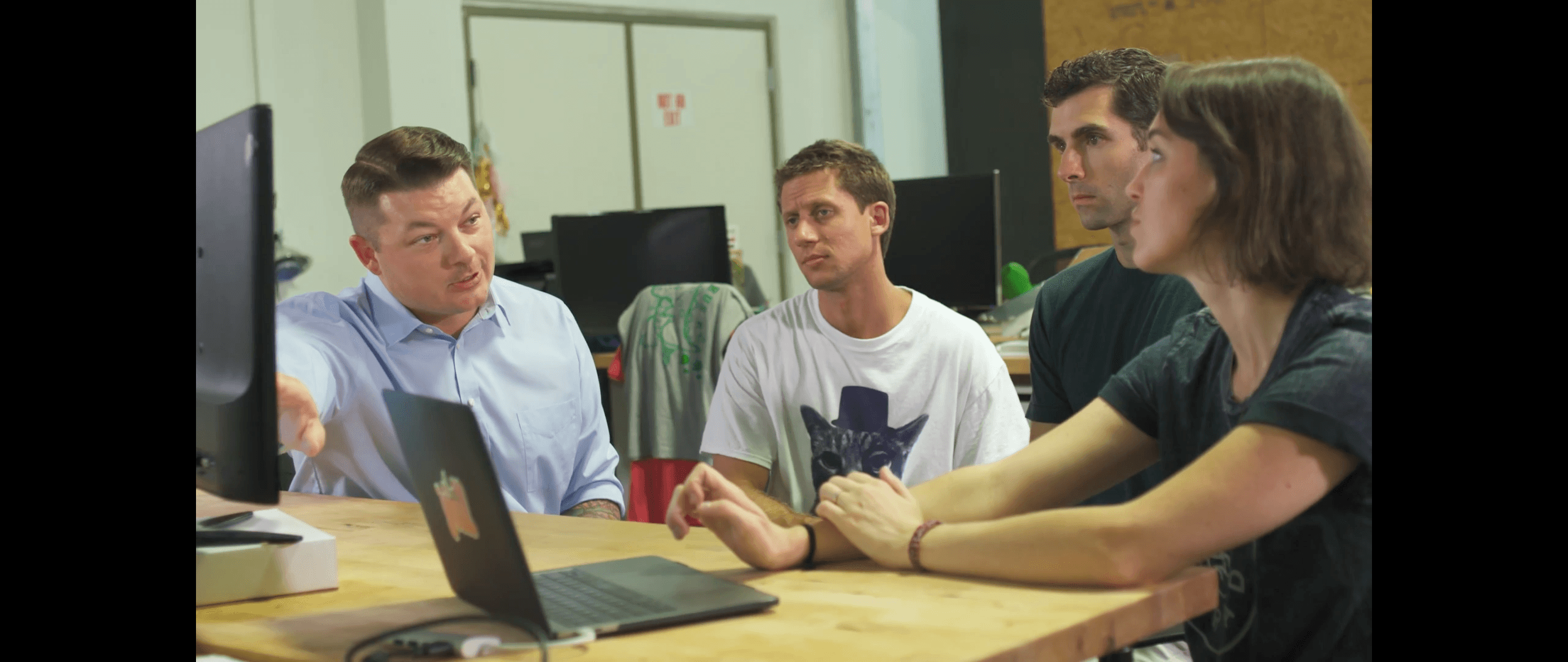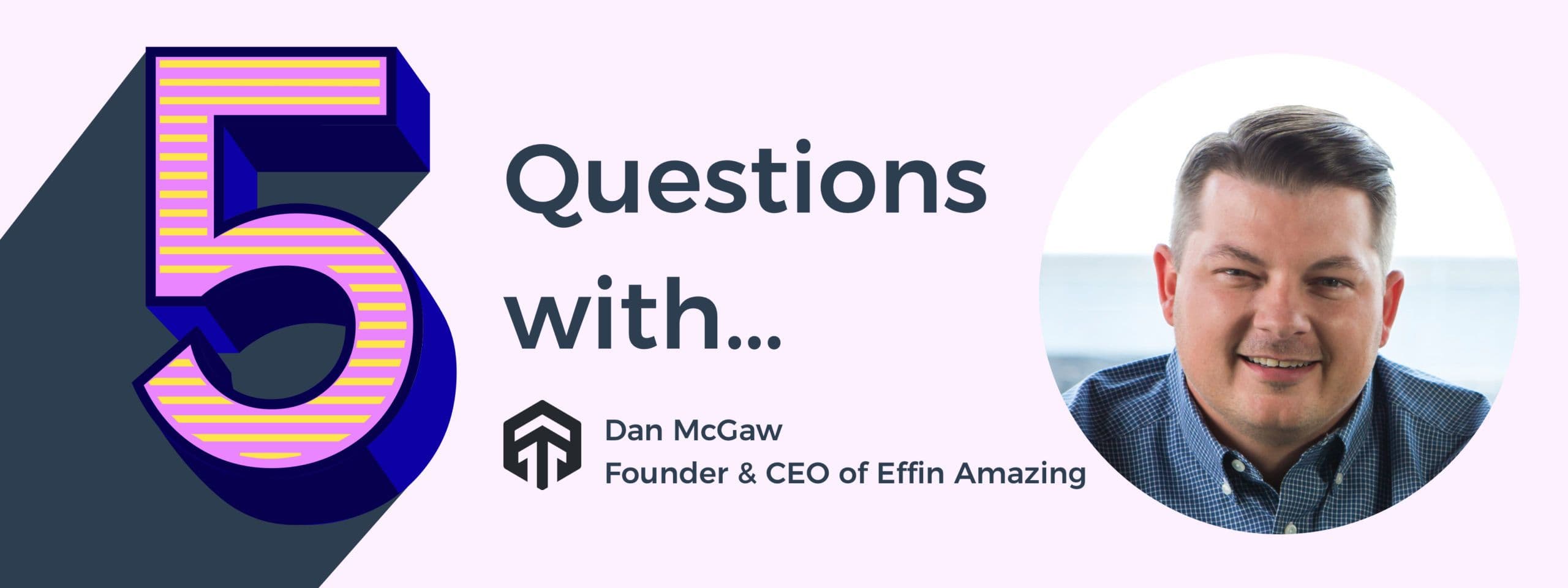5 Questions with Dan McGaw, CEO at Effin Amazing
Interview with Amplitude partner Dan McGaw on the founding of Effin Amazing, their approach to client engagements, their recommended analytics stack, chasm crossing, and customer delight.
Effin Amazing is an analytics and martech stack agency based in Orlando. Founded by Dan McGaw, the former head of marketing at Kissmetrics, and also known as one of the original growth hackers. For over a decade, he and his team have helped companies like Wistia, Frame.io, Infer, Contactually and Forks Over Knives to measure and optimize their products to acquire and retain customers.
Name: Dan McGaw
Current Role: Founder and CEO of Effin Amazing
Location: Orlando, Florida
This is a post in our Modern Product Partners series in which we interview prominent product and growth leaders from today’s forward-thinking digital agencies. We’ll draw from their ideas and experiences to learn about modern practices for building successful digital products.
What is Effin Amazing and how did you come to start it?
Effin Amazing is an analytics and martech stack agency, so we help our clients along two main dimensions.
First, tooling. We’re a highly data-driven group, and my past experiences in SaaS taught me that most companies don’t understand what tools they need and don’t have their tools set up properly.
Second, conversions. The other big thing I’ve learned is that while many companies know how to get people to their site, they’re not always sure what to do after. We do whatever it takes to help our clients convert more visitors, from marketing automation to funnel optimization.
Effin Amazing started a bit by accident. I decided to start taking on some consulting work to pay the bills while I was building my own startup, and got myself booked doing ten hours a week almost immediately. The startup ended, I got more and more consulting work, and it turned into a full-time job — and Effin Amazing was born.

How does your team structure each client engagement?
The way we work with clients differs based on the engagement, but it generally follows the same basic pattern.
Reach-out: A client reaches out to us with some kind of problem.
Audit: We put together a list of everything that we need to figure out from the client to understand what the real problem is, and what we need to do to solve it.
Visit: We go into the organization (physically) and we meet with everyone we can to ask them questions and figure out the scope of the problem.
Strategy: While it actually begins during the Audit phase, the next step is to put together a strategy document that decides how we’ll work together, where we are, where the client needs to go, and why.
Implementation: After all that, we go to work executing on the strategy.
This actually mirrors, in many ways, how any company working on growth internally should go about doing it. Talk to people, suss out what’s really going on, and then put together a plan for solving it. Never just go off your first impression of a problem — I can’t count the number of times a client came to us thinking their problem was one thing, and it actually turned out to be something else entirely.
What tools do you recommend companies use to grow their product?
There are a couple of big considerations that we take into account when we use tools and recommend tools to our clients:
Longevity: When you start running your analytics through a tool and get it instrumented properly and begin to rely on it, you need to know that that tool isn’t going to shutter its doors or get acquired or go out of business within a year. That’s why we look for companies that are well-funded, companies with good business models, and otherwise reliable options for all of the tools we recommend.
Integrations: Tools that can integrate with the other tools in your stack are going to be much more useful than tools that can’t, for various reasons. For one, they become easier to replace if they do go out of business, as detailed above. For another, they help you get set up a lot faster at the beginning.
Based on these two main factors, we have a handful of tools we recommend to clients without reservation:
Google Tag Manager: Not negotiable. This is just table stakes for understanding your traffic and making sense of who is coming to your site.
Segment: Critical for connecting your different services.
Salesforce: Mostly because it has far more integrations than any other CRM out there, through both AppExchange and Zapier.
Clearbit: Our enrichment tool of choice, mainly because it’s well integrated into Segment.
Amplitude: Where we put, and encourage all of our clients to put, all of the data that flows out of their products.

What’s the best book you’ve read that’s helped you in your career?
Crossing the Chasm by Geoffrey Moore.
It speaks to this important problem of building something before it’s “ready.” It’s something that I’ve experienced a few times—creating a product or a service before the rest of the market was really there, before even the people the product was for necessarily knew they needed it.
The upside is that if you have identified a real need and have found real people who want a solution for that problem, then you’re not actually “too early.” You’re just at that stage where your only real users are people who are inclined towards innovation and new tools.
When you’re building something on the cutting edge, you need to have a measure of patience. You can’t expect people to change their habits and methods of thinking in the blink of an eye.
What’s the best advice you’ve heard about product?
The best line I’ve heard came from Brian Kissel’s LinkedIn profile. I met Brian years ago when I worked at Kissmetrics. The line was, “I build products that delight our users and provide a quality experience.”
It’s a very simple line. There’s no hidden meaning or epic quality to it. It speaks perfectly, however, to what it is you need to think about as a product leader in 2018 and beyond. It’s a huge part of what we’ve been doing with UTM.io, which is an Effin Amazing project—everything is about building a soft and delightful experience for our users.
If your product doesn’t give your users any delight, you’ve failed. It doesn’t matter if your downloads are high or you’re converting XX%—if it’s not a high-quality experience that brings delight to your users, you’re failing at the job of building product.
Curious to learn more? Sign up for an upcoming online course taught by Dan that will take you through the journey of optimizing your marketing tech stack!

Tai Rattigan
Former Head of Partnerships, Amplitude
Tai formerly worked with our Solutions and Technology partners at Amplitude to maintain our best-in-class network. Coming to Amplitude from the digital optimization space, Tai is excited about seeing companies discover insights and transform their businesses with Amplitude.
More from Tai




